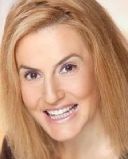Personal Perspectives
I Was Poisoned by a Russian Agent
A Personal Perspective: The experience of being poisoned posed some paradoxes.
Updated April 25, 2024 Reviewed by Lybi Ma
.jpg?itok=vXl7H7Gt)
In 2005, Russian authorities saw medical aid workers as challenging their Chechen policy. I provided medical care to Chechens for 10 days during the Second Chechen War, and I was poisoned with suspected anthrax.
At the time, Chechnya was one of the most dangerous places on earth, a largely internationally ignored war-torn region, marked by armed conflict between Russia and Chechens fighting for independence. Grozny, the capital of Chechnya, was a ravaged wasteland scarred with the detritus of ferocious bombings. It was in this squalor that 90,000 to 190,000 Chechens made their home. Before our arrival, Doctors Without Borders abandoned the area after one of their female physicians was abducted and murdered. Because my group of dedicated do-gooders crashed into this battle-scarred area, we were constantly “escorted” by Russian federal security, an FSB agent.
While in Chechnya, after I drank a beer handed to me by our FSB escort, I developed severe flu-like symptoms consisting of fever and arthralgia. Days later, projectile nausea, vomiting, lethargy, dizziness, fainting, and extreme weakness followed. I was delirious and unable to get out of bed for three days. Immediately after becoming sick, given the severity of my symptoms—and with no one else in my group ill—I knew that I had been poisoned.
For three years while living in New York, I existed in a liminal space closer to death than life. I quickly wizened from an endurance athlete into a sickly, immunocompromised patient, and shriveled into an apparition of my previous robust self.
Five years later with a resurgence of some energy, and putting the pieces of my medical puzzle together, I learned that many of my symptoms were consistent with acute gastrointestinal anthrax exposure. After my initial symptoms, I subsequently developed chronic inflammation, recurrent pneumonia, GI parasitic infections, an autoimmune disorder, and food allergies. But eventually, it would give me much more.
In darkness, one searches for light. My being poisoned was a paradox. I reconciled my trauma by living with loving kindness rather than bitter disappointment; the powerful reverberations set me on a journey of extraordinary transcendence. Struggling with medical illnesses and the emotional upheaval and fallout of being poisoned sparked an unexpected spiritual awakening and reconnection in myself and, in turn, some of my patients. My awakening included an active awareness of a profound interconnectedness with something much larger than myself —maybe nature, God, or the Cosmos. These revelatory experiences were essential to my recovery. While my body struggled, my spirit grew stronger.
A Paradox and a Gift
Anthrax was the gift that allowed deep unconscious pockets and split-off worlds within me to merge; new creative possibilities surfaced, and healing became possible. Writing became an expansive catharsis that served as an integral part of my healing process: I was taken to a strange, spiritual land after being poisoned that was beyond my normal experience, impossible to describe, and not reachable by discursive thought. My subsequent spiritual awakening was an intuitive, irrational experience—an inner noumenal journey. It was a journey to an invisible world, rather than a phenomenal, verifiable experience that my family was submerged in. My family dismissed my being poisoned and falling ill, in part, because it was beyond their conscious experience and unconsciously, it terrified them.
As horrible as it was, it took my being poisoned to learn how to stop pushing myself, slow down, and accept the limits of my body. In my childhood, I developed a defensive stance of being a warrior queen dramatized by an invincible, counterphobic attitude of going into danger to survive with aplomb unscathed to undo my primordial feeling of worthlessness. Anthrax was powerful—it smashed my health and false self and allowed my nascent self to emerge.
Being poisoned by an agent of terror provided clarity of my proper place in the world as a puny, finite being in the boundless pageantry of Being. My patients and I began to have a dialogue of authenticity as we relinquished talk of self and object in favor of self-other. There were no knowers in the room who were out to win, only humans engaged in respectful dialogue.
After my transformation, some of my patients somehow became more flexible in surrendering, not to me, but to their own growing tolerance of their idiosyncratic range of emotions. There was a further unfolding of their unconscious to meet my unconscious, which produced an evolvement of new heights of faith and creativity. Their surrendering liberated them to no longer submit to their false sense of self and be reborn into rich possibilities. In this journey, we have become better able to uncover and know our true selves.
Anthrax poisoning laid me low; I could no longer “do” and run away from my childhood feeling of being defective. It pushed me to “be” and transform my consciousness from Carl Jung’s concept that the crucifixion of Christ was the prototype of the human being crucified between two different levels of consciousness, the horizontal beam of the human world of doing, to the vertical beam of the heavenly realm of being and spirituality. When my physical body became compromised my spirit took the helm, illuminating for me true invincibility. As a result of becoming ill, I began to connect to transcendent aspects of reality, catching glimpses of comprehension that ordinary reality is separate and bound to transcendent reality. Daily meditation and attentive solitude made my life bearable and eventually, extraordinary.
Anthrax humanized me, leading me to accept my fragility and learn greater self-love and intimacy. In many ways, anthrax brought me home. Unable to exhaust my body through ultramarathons, my spiritual dimension awakened through stillness, through which I began to embrace the beauty of my vulnerabilities and met myself. This recognition catalyzed my shift into a higher state of enhanced love, with a previously unknown sense of limitlessness.
Healing involves realizing our limitations and the innate ability to aspire towards greater potential and accepting an invitation to invent the new. And maybe most importantly, it is to embrace the sanctity of each human life. Wounded and finite as I feel we all are, I hope to inspire others to choose a new peace-giving life generated by a more expansive perspective. Maybe, this is the cure and the antidote humanity needs.




